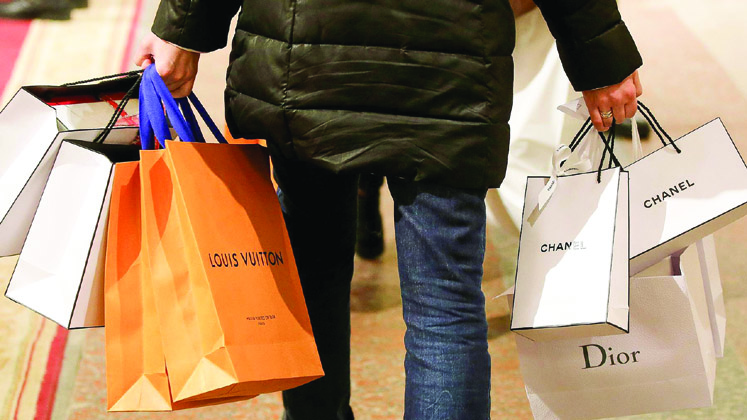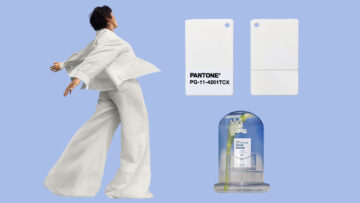India’s fashion and apparel segment is currently experiencing a significant boom and it’s no wonder international brands are flocking to the country to tap into its potential. With a market size of over US $ 96.47 billion, increasing purchasing power and evolving consumer preferences, India has become a hotspot for apparel brands. From airports and metro cities to Tier-1 and Tier-2 cities, the international brands are eyeing expansions. They are quick to understand the unique challenges and opportunities that the vast Indian market presents and accordingly they tailor their products and marketing strategies to suit the local tastes and preferences.
- India – a land of fashion retail opportunities for varied reasons
The expansions are happening timely as India, with its burgeoning middle-class and increasing disposable income, has emerged as an attractive market for overseas fashion brands. So, what’s driving this trend? One of the key reasons is the potential that India’s growing economy offers to overseas fashion brands. With a population of over 1.4 billion people and a middle-class that is projected to reach 547 million by 2025, the Indian market represents a significant growth opportunity for international fashion brands. Moreover, the rise of e-commerce and digital marketing in India has made it easier for these brands to reach a wider audience.
Another reason is the changing lifestyle of Indian consumers. With increasing exposure to global trends and the growing influence of social media such as Instagram and Tik Tok-alike apps, Indian consumers are becoming more fashion-conscious and are demanding a wider variety of fashion options that define a personalised statement for them. Overseas fashion brands offer Indian consumers access to the latest fashion trends, styles and designs that may not be available in the domestic market.
Furthermore, the Indian Government has also taken several initiatives to attract FDI (foreign direct investment) in the country, including relaxing regulations and reducing barriers to entry. This has created a conducive environment for overseas fashion brands to enter the Indian market.
In fact, according to a recent report by real estate consultant CBRE, leasing activity in the retail sector grew by 5 per cent to 2.43 million sq. ft. during July-December 2022, with international brands like Victoria’s Secret, Zara, H&M, Armani, Uniqlo, Forever 21, GAP, Mango, Marks & Spencer, Tommy Hilfiger, Calvin Klein, Louis Vuitton, Gucci, Chanel, Prada and many more continuing to expand despite global headwinds.
Retail real estate is making a strong comeback, with nearly 10.15 million square feet of new malls in Tier-1, Tier-2 and Tier-3 cities in 2022, and another 7.25 million square feet in 2023, as said by Anuj Puri, Anarock Property Consultants
- Partnerships pave way for expansions across high-end malls and Tier-1, 2,3 cities
Collaboration is the key and the credit goes to retail conglomerates for bringing brands in India! Major retailers in the country are bringing international retailers to India as part of strategic partnerships. Several international luxury brands have partnered with Reliance Retail for their India footprint through high-end malls. Palladium and Jio World are luxury shopping hubs in Mumbai, while Emporio in New Delhi, UB City in Bengaluru and Quest in Kolkata are high-end shopping malls in other Indian metro cities. As per reports, these brands expect around 76 per cent increase this year over last year.
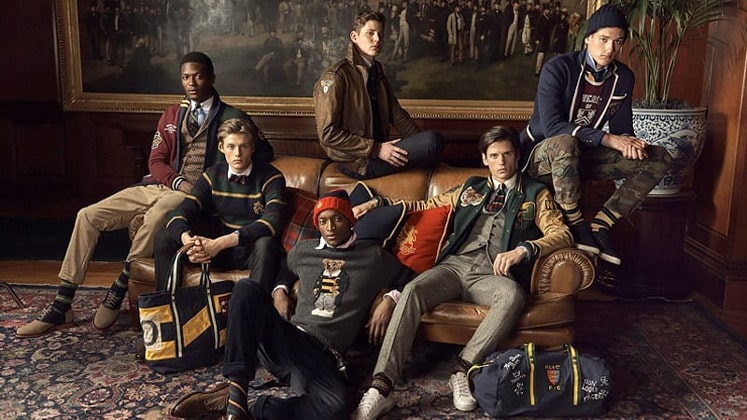
Another major collaboration that has happened is between Aditya Birla Fashion and Retail Ltd. (ABFRL) and Galeries Lafayette. The first two Galeries Lafayette stores will open at The Fort in Mumbai and DLF Emporio in Delhi respectively. Each of the stores will bring together more than 200 luxury and designer brands under one roof. The flagship store at The Fort Mumbai is expected to be operational in 2024, while the store at DLF Emporio in Delhi will be operational in 2025.
Additionally, ABFRL, which includes the international brands’ portfolio The Collective, is India’s largest multi-brand retailer of international brands and has long-term exclusive partnerships with select brands such as Ralph Lauren, Hackett London, Ted Baker, Fred Perry, Forever 21, American Eagle, Reebok and Galeries Lafayette. The retailer, notably, has been growing in India at a compound annual growth rate (CAGR) of 20 per cent.
According to Nexus Malls, which has a portfolio of 17 malls in 13 Indian cities, the demand from big international brands has increased drastically in post-pandemic scenario. As many as 15 international brands, that stopped their Indian operations some years ago, are now returning to India including new entrants such as Kiabi, Boohooman, Mavi, Miss Poem and Balenciaga.
Not just high-end shopping malls, even Tier-2 and Tier-3 cities including Vadodara, Indore, Nagpur, and Udaipur – where the collective retail space spans over 2.50 million square feet – are also attracting investment from international fashion brands that are loved by masses such as H&M, Zara, Gap, Uniqlo etc. The next two to three years seem to be a golden period for the brands to flourish.
Since the pandemic, the retail industry in India has seen a positive shift in the demand environment, resulting in the emergence of large-format stores outside metropolitan cities. Recently, Uniqlo, a renowned Japan-based clothing brand, announced the opening of an upcoming store at Dhillon Plaza in Zirakpur, Punjab which is a Tier-2 city, while other popular brands like Zara, H&M, M&S, GAP have also been expanding their reach across Indian cities.
Uniqlo has always viewed India as a promising future market and currently has seven stores located in the National Capital Region (NCR).
Going forward, Uniqlo is planning to adopt a cluster approach to expand its presence in the Western Indian cities of Mumbai and Pune by opening multiple stores. Uniqlo also launched full-scale e-commerce operations in India a year ago, which it expects will contribute 15 per cent of the overall sales.
According to Trent’s annual report, Inditex Trent, the joint venture between Inditex and Tata that manages 21 Zara stores in India, experienced an increase in revenue to Rs. 1815 crore in the last FY ’22, while carefully planning the high-quality retail spaces for a better footfall.
Similarly, premium fashion e-commerce platform Nykaa has introduced California-based e-commerce site Revolve on its platform, opening a whole new avenue of 26,000+ options and over 400 brands for the Indian audience. It’s pertinent to mention here that, in FY ’22, Nykaa launched The Global Store and several prominent foreign brands from accredited overseas retailers by bringing the best of international brands directly to Indian consumers.
Another leading e-tailer in India Myntra also launched five international high-fashion labels last year including Miss Poem (from Turkey), OXXO (from Turkey), I Saw It First (from Manchester), LC Waikiki (from Turkey) and NA-KD (from Sweden).
Miss Poem features stylish dresses, printed tops and quirky T-shirts for Gen Z customers; while OXXO offers sustainable fashion for girls and women aged between 16 to 45. I Saw It First is known for edgy high-fashion looks such as bodycon dresses, printed cropped tops and flowy skirts, whereas NA-KD re-invents sustainable fashion for next-gen shoppers and LC Waikiki caters to kids and is a recognised leader in the ready-to-wear industry.
“The addition of high-fashion labels caters to the evolving fashion needs and preferences of shoppers, particularly the Gen Z cohort on the platform seeking fresh styles, offering trend-first styles and global appeal at sharp price points,” commented Jayanti Ganguly, Business Head – International Brands and Marketplace, Myntra.
Very recently Myntra’s launch of UK-based menswear brand BoohooMan in the Indian market has sparked excitement among young, fashion-forward men who are embracing global, trendy and experimental brands. With over 600 styles inspired by subcultures including surf, punk, neutral basics and hip hop, the collection is poised to disrupt the Indian market by introducing an array of uber-stylish options.
Furthermore, M&S – a fast fashion brand from the UK – which is in a joint venture with Reliance Retail, is seeing ‘turbo charge’ growth of at least 8 per cent Y-o-Y and plans to expand more in India and is quite delighted about the growth. Ritesh Mishra, Managing Director, M&S India shared that their company’s plan is to open one store every month and this is the growth pace they aim to maintain at present.
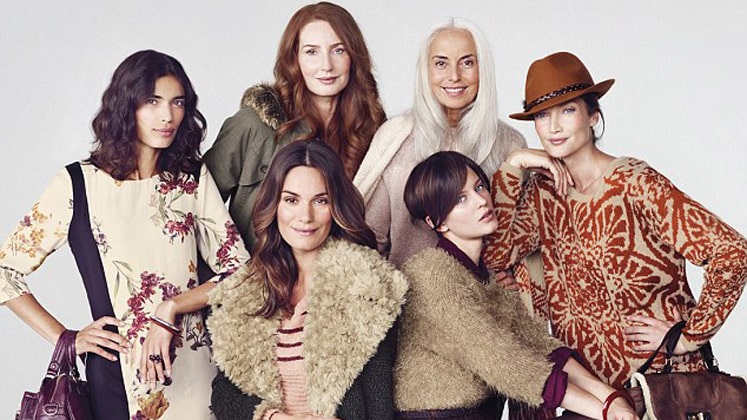
Also, as the official retailer for Gap across all channels in India, Reliance Retail offers the latest fashion offerings through exclusive brand stores, multi-brand store expressions and digital commerce platforms. With a consolidated turnover of US $ 26.3 billion and a net profit of US $ 931 million in FY 2021-22, Reliance Retail is the only one capable of making this partnership happen.
Moreover, Reliance Retail has also been responsible for the opening of Valentino Boutique store in DLF Emporia Delhi followed by its Mumbai flagship store which has paved the way for Italian brands to venture into the Indian land.
Swedish fashion brand H&M, since entering the Indian market in 2015, has established approximately 50 stores, and its sales for FY ’22 reached US $ 210 million with Y-o-Y increase of 11 per cent. The brand still holds the top spot in India’s fast fashion industry based on revenue, thanks to its ambitious store expansion and competitive pricing. H&M intends to introduce brands such as Monki, Cheap Monday, Arket and Other Stories in the Indian market in the near future.
Additionally, another value segment French brand Kiabi is reportedly in discussion to enter the Indian market. The brand is owned by The Association Familiale Mulliez (AFM), which controls Auchan supermarket, Decathlon and several other retail brands. Kiabi’s global team recently visited India to explore retail space and the company has appointed a consultant to facilitate its entry into the market. The brand is looking for large-format stores in metro cities.
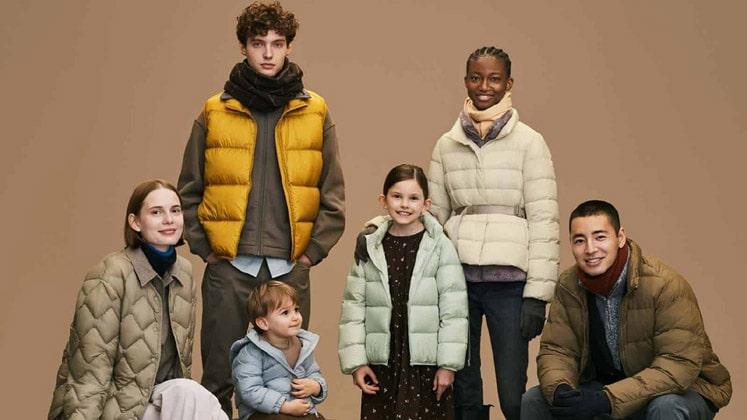
Italy’s luxury fashion brand Roberto Cavalli, British luxury goods brand Dunhill specialising in ready-to-wear, custom and bespoke menswear, leather goods and accessories, Brands for Less from Dubai are currently in talks to enter the Indian market next year. As per reports, these brands are seeking local partners and deciding on the best location to open their stores, with plans to enter a metro city first before expanding their operations.
This shows that luxury brands, premium brands and fast fashion brands have been maintaining a steady presence in the country, and with an increase in retail sales and favourable consumer sentiment, the pace of expansion for international brands has picked up as well.
Interestingly, the franchise model is a low-risk way for investors to enter a new market. With the help of franchising, international fashion brands can expand their reach in India, offering a win-win situation for both investors and brands. The opportunities in the franchising sector in India are immense and it is an exciting time to be part of this burgeoning industry.
Government policies supporting the push!
The Indian Government has implemented several policies to attract foreign investment and encourage international brands to enter the Indian market. Some of these policies include the Foreign Direct Investment (FDI) policy, the National Manufacturing Policy and the National Retail Policy. These policies have helped to create a more favourable environment for international brands to enter the Indian market.
According to various reports and sources such as IBEF and Invest India, the Indian market has become increasingly attractive for overseas brands due to factors including India’s rapid economic growth, large domestic market, young population, stable political system and favourable business environment. India also offers foreign investors attractive opportunities across various sectors, including in manufacturing, services, retail, e-commerce, infrastructure, energy, healthcare and education. Additionally, India attracted the highest-ever FDI inflow of US $ 83.57 billion during the financial year 2021-22.
“Moreover, India has signed several bilateral and multilateral trade agreements with key markets that facilitate market access and reduce trade barriers for overseas brands. However, brands need to adapt to the Indian market and use various strategies, such as localisation of products and marketing campaigns, partnerships with local retailers and creating a strong digital presence, to survive in this highly competitive market but the picture is very well positive,” mentioned Lloyd Mathias, Angel Investor and Business Strategist.

